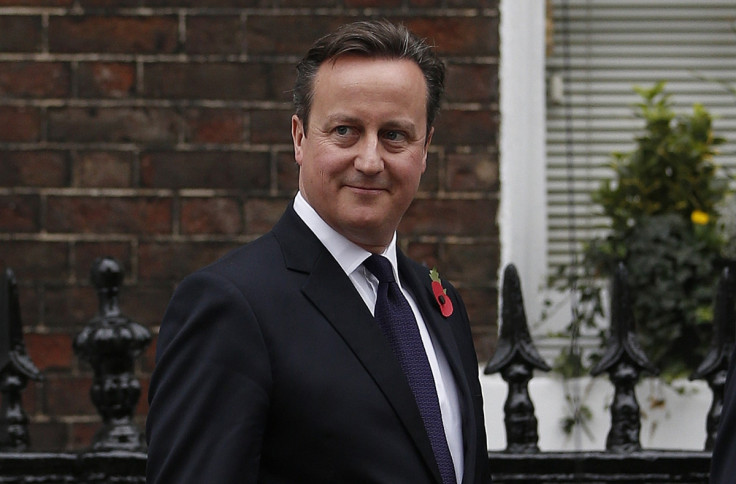EU referendum: Cameron to reduce 'draw of welfare system' to migrants under deal demands

David Cameron has announced his intentions to repel the "draw" of the UK welfare system to migrants as part of his renegotiations for a deal with the EU. Cutting in-work and social housing benefits for four years and stopping the sending of child benefits overseas are among the four objectives "at heart of EU negotiation" Cameron laid out during a speech at Chatham House in London.
Ahead of Britain's referendum on its membership of the EU by the end of 2017, Cameron described the decision as "the biggest we will make in our lifetime" while ruling out the possibility of a second vote.
He said: "This choice cannot be undone, if we vote to leave then we will leave. This is our only chance to get this right, for Britain and for the whole European Union.
"If we vote to leave, then we will leave. There will not be another renegotiation and another referendum. If you think we should leave – and leave means leave – then campaign for that.
"But if you are actually arguing for a better relationship between Britain and the European Union, then don't campaign to get out. Work with me to get that better deal for Britain.''
Cameron said he hopes to show it is not "mission impossible" for Britain to improve its relationship with the EU, with one of the objectives laid out by the prime minster being that the UK must be exempt from committing to an "ever-closer union" as well as measures to protect the single market for the UK and other countries that do not use the euro.
He said: "Non-euro members like Britain which are outside the Eurozone need certain safeguards, in order to protect the single market and our ability to decide its rules and to ensure that we face neither discrimination nor additional costs from the integration of the Eurozone. Because the European Union and the Eurozone are not the same thing, and those of us who are in the EU but outside the Eurozone need that accepted."
Using figures from the Department for Work and Pensions (DWP) which claim about 40% of EU migrants coming to Britain are on the benefit system, Cameron said he intends to deter the number of EU citizens from entering Britain by claiming in-work benefits for the first four years, as well as restricting the number of EU migrants bringing in families from outside the EU.
This choice cannot be undone, if we vote to leave then we will leave. This is our only chance to get this right, for Britain and for the whole European Union
Despite previously saying he will fight "vigorously" for Britain to remain in the EU, Cameron did not rule out campaigned for a so-called Brexit if the EU does not listen to his demands.
He said: "If we can't reach such an agreement and if Britain's concerns were to be met with a deaf ear, which I do not believe will happen then we will have to think again about whether this European Union is right for us. As I have said before – I rule nothing out."
The speech was critcised by Vote Leave, which organised for two people to stage a protests at Cameron's speech regarding Brussels at the CBI. Dominic Cummings, campaign director of Vote Leave, said: "David Cameron promised fundamental reform but what he's asking for is trivial – he's given up before he's started. The public wants the end of the supremacy of EU law and to take back control of our economy, our borders, and our democracy. The only way to do this is to vote leave – we won't get it by trusting Cameron."
Will Straw, executive director of Britain Stronger In Europe, said: "The prime minister has set out a series of sensible and sound reforms to improve Britain's relationship with Europe.
"It is now clear that Leave campaigners are losing the argument and so are now desperately launching 'project nasty' to avoid engaging in serious debate about what is best for Britain. I believe that Britain is stronger, safer and better off in Europe than we would be out on our own and that the benefits of our membership outweigh the costs.
"Of course Europe isn't perfect, which is why we need to argue for reform, now, tomorrow and into the future. Britain has a long history of delivering reform in Europe, prime ministers from Wilson to Thatcher to Blair have proved that in the past."
© Copyright IBTimes 2024. All rights reserved.







